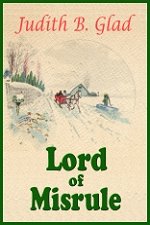Shakespearian Comedy - Aristophanic
- Mummer's play - (also known as mumming) are seasonal folk plays performed by troupes of actors known as mummers or guisers (or by local names such as rhymers, pace-eggers, soulers, tipteerers, galoshins and so on), originally in England, Ireland, Scotland and Wales (see wrenboys), but later in other parts of the world. They are sometimes performed in the street but more usually as house-to-house visits and in public houses.
Although the term "mummers" has been used since medieval times, no play scripts or performance details survive from that era, and the term may have been used loosely to describe performers of several different kinds. Mumming may have precedents in German and French carnival customs, with rare but close parallels also in late medieval England (see below).
The earliest evidence of mummers' plays as they are known today (usually involving a magical cure by a quack doctor) is from the mid to late 18th century. Mumming plays should not be confused with the earlier mystery plays. - Feast of Fools
- Feast of the Ass
- Saturnalia - The Saturnalia was a large and important public festival in Rome. It involved the conventional sacrifices, a couch (lectisternium) set out in front of the temple of Saturn and the untying of the ropes that bound the statue of Saturn during the rest of the year. Besides the public rites there were a series of holidays and customs celebrated privately.
- Boy Bishop - In England the boy bishop was elected on December 6, the feast of Saint Nicholas, the patron of children, and his authority lasted till Holy Innocents' day (December 28). The real Bishop would, symbolically, step down at the deposuit potentes de sede of the Magnificat ("he hath put down the mighty from their seat"), and the boy would take his seat at et exaltavit humiles ("and hath exalted the humble and meek").
- Chosen Lord of Misrule
- Repression Expression
- Laughter is what teaches us nothing is sacred.


No comments:
Post a Comment